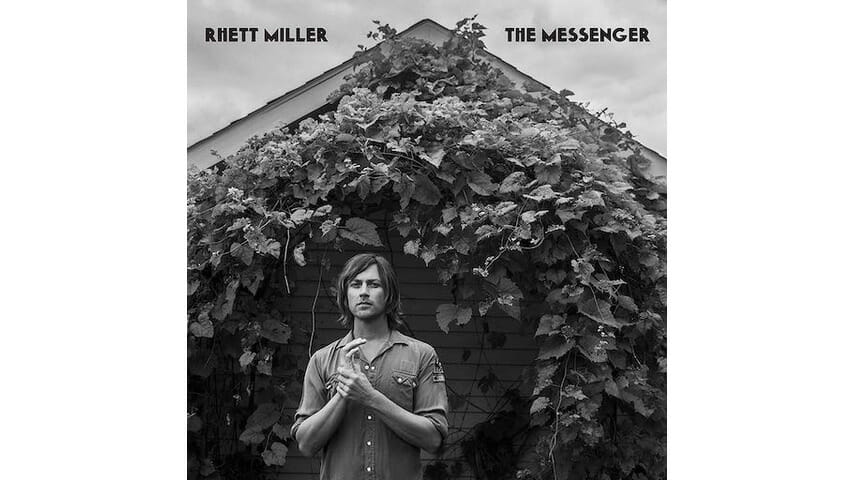For a while it seemed like Rhett Miller had two modes. There was the brash singer who excelled at writing seat-of-your-pants songs full of clever lyrics and super-catchy melodies, which he did on his own albums and fronting the Old 97’s. When he wasn’t locked on to that frequency, though, the results could be desultory ballads that, while pleasant enough in the moment, didn’t have the staying power of his up-tempo stuff.
Miller has merged those sensibilities on his latest solo effort, applying his knack for hooks to the less frenetic tunes as well as the barnburners. The result is 12 of the the tightest songs he’s written, even as he takes a loose approach to playing them. His collaborators get some of the credit: Miller didn’t really know producer/guitarist Sam Cohen, bassist Brian Betancourt and drummer Ray Rizzo before they gathered in an upstate New York studio to record, and he gave them plenty of latitude to shape the sound of the songs. They pushed him to take rhythmic chances that he’s never taken before, emphasizing a bottom-heavy rhythm with turned-up bass, leaving room for creative guitar breaks and injecting a laid-back swagger that anchors Miller without weighing him down.
That’s a good thing, given the weighty subjects on Miller’s mind. Many of the songs on The Messenger dig into depression and self-deception, topics Miller approaches almost as if he’s coming clean. On opener “Total Disaster,” he offers a glimpse into the inner life of a Rhett Miller-like singer who slides by on a facade of charm and catchy songs while struggling to keep it together. Sounds dark, but the update on a classic girl-group beat and an irresistible guitar hook soften the confessional lyrics. There’s a similar effect at work on “I Used to Write in Notebooks,” where gleaming piano and punchy bass frame Miller’s voice as he sings sadly about how modern technology acts as a barrier to the world around us. It’s not all sad-bastard ruminations: he’s grateful to have found love on the waltz-time “You Were a Stranger.” He traces his own evolution from big-dreaming kid to successful but unhappy adult to content husband and father on “Close Most of the Time,” which doesn’t stray far from Miller’s poppy alt-country roots, with an undercurrent of surf-y guitar.
Miller is, as usual, a persuasive lyricist throughout The Messenger, with nimble turns of phrase, unexpected imagery and vivid emotions, even if they tend more toward downhearted than cheeky and effusive. Then again, as he sings on “I Used to Write in Notebooks,” “It’s not the same world / I’m not the same guy.” True enough: instead of muscling through on charisma and bluster, this guy pushes himself in new directions and ends up with perhaps his best solo album since 2002’s The Instigator.
